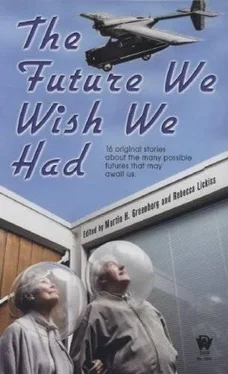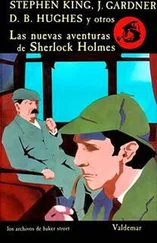The doctor’s office was a different place than the waiting room. Ro had been comfortable with the waiting room. It was designed for pregnant women: large, comfortable chairs with good back support, footstools, and a gas fireplace that was in constant use in the winter. A computer in the corner constantly played information about women’s health and reproductive news, and from any of the tables, waiting patients could easily access sites that pertained to childbirth and childrearing.
But the office was around the back of the clinic-actually in a different building altogether-and the waiting area felt like the waiting area of a lawyer or accountant. There was one large window with a spectacular view of the parking lot, and a less spectacular view of the lake across the street and the mountains beyond. The chairs were straight-backed with no armrests, and weren’t wide enough for Alden’s carrier. With some hesitation, Ro put the sleeping baby on the floor.
She leaned over and played with his curly black hair. His tiny fists were curled against his sleeper, the soft blue blanket her parents had given him tucked beneath his chin. She had no idea how this beautiful boy with his dark brown eyes, chocolate skin, and delicate features could be ill. He was developing the way he was supposed to, he ate well, although he still did not sleep through the night.
Gil paced, and somehow that reassured her: if Gil was nervous, then she had a right to be nervous too. Only she didn’t tell him-couldn’t tell him-one of the sources of her nervousness. She didn’t want to be the mother of a sickly child. She had seen those mothers, with their vaguely frantic air despite their protestations that everything was fine and under control. She had seen the despair in their eyes, the way they clung to their babies as if determination alone could prevent whatever tragedy was ahead.
She had clung to Alden that way on the drive over, and had been ashamed of herself. She didn’t even know what the doctor was going to say.
Finally, the androgynous automated voice announced that the doctor was ready to see them. The door to his office swung open, and she grabbed Alden’s carrier, wishing once again that she was in the waiting room at the clinic, where real people called her name and opened the door, and gave her a reassuring smile as they led her into an unfamiliar room.
The doctor’s office smelled faintly of roses. Several tiny hybrids lined a wall just inside. Books-old, dusty, and obviously just for show-lined another wall. The carpet was plush, the desk was messy, and the view here, through the window behind the desk, was of a small fenced-in garden, well tended. She had always known that Dr. Wyatt was a nurturer. It was nice to have that sense confirmed.
He looked as if he belonged behind that desk. He wore a brown sweater with a cream-colored turtleneck beneath it, setting off his mahogany skin. His shaved head shone, and the single diamond he wore in his left ear looked even more prominent than usual. As Ro and Gil entered, he stood and took the carrier from them, smiling down at the sleeping baby.
He ran a finger along Alden’s porcelain cheek. “Ironic,” he murmured so softly that Ro knew he was speaking only to the baby. She shuddered, thinking that a confirmation of all she had feared. Then he smiled at her. “Please sit.”
She waited until he placed the carrier on his desk, on the only bare spot left by the piles of paper. The carrier was turned so that they all could see the boy. He hadn’t moved, but his blanket had. His soft breath made a corner of it flutter ever so slightly.
“What’s wrong with him?” Ro asked, unable to wait.
Gil took her hand in his warm, strong one. She could feel tension in both of their fingers as they braced themselves.
“Nothing,” Dr. Wyatt said.
“Nothing?” And in Gil’s surprised growl, she heard the beginnings of anger. She squeezed his hand, warning him to wait.
“That’s what so wonderful,” Dr. Wyatt said, leaning forward. “We did the standard genetic testing on your son.”
Ro remembered. Genetic testing was required in Oregon, in all but a handful of states now, and the results were supposed to be kept private. In fact, parents could opt not to know what dangers lurked in their child’s genes. Ro and Gil had taken a moderate approach: if the problem was going to be incapacitating or life-threatening they wanted to know. Otherwise, they chose to let the information come to Alden on his eighteenth birthday-a Pandora’s box he could chose to open or not, all on his own.
Gil had stiffened beside her. She knew what he was thinking: incapacitating or fatal. How could Dr. Wyatt call that nothing?
“And we discovered that Alden is only infant we have seen in this clinic, indeed in this part of the state, who had a perfect set of genes.”
“P-perfect?” Ro repeated. She had been so expecting the other, the bad, the horrible news, that the good news was hard to absorb.
“Perfect. No missing genes, no malfunctioning genes, no hereditary diseases. In fact, he is quite the survivor, with some extra genes that have been determined to fight certain viruses. Unless your son has an accident, he will live a long and healthy life.”
Ro frowned. Perfect.
“We used to think,” Dr. Wyatt was saying, “that perfect human beings could be engineered. What we didn’t know until just recently was that perfect human beings already existed. They could be born into a family like yours.”
Gil cleared his throat, and slipped his fingers from Ro’s. He recovered quicker-or at least his brain did. It always had.
“We signed the waiver,” he said. “We weren’t supposed to find out anything like this about Alden.”
“You signed the waiver, yes,” Dr. Wyatt said, “but did you read it?”
Ro glanced at Gil. She had been in labor when they remembered the consent. He had been the one to handle the business details of Alden’s birth. He shrugged. “I scanned it.”
“Then you might have missed one of the clauses in the middle. It addressed this very issue.”
“What issue?” Ro asked.
Dr. Wyatt smiled at her; then he leaned forward, folding his hands on the desk. She recognized the posture. It was his sincere-explanation posture. Once, another expectant mother had described it to her as his attempt not to patronize his patients.
“We have the capability of growing new organs from various cells. We do a lot of microsurgery, a lot of repair work on the cellular level before we can use some of these organs.” He glanced at Alden, who was still sleeping. “Sometimes we repair genetic defects in the womb. We also do a lot of work with the new techniques, ones that involve injecting new genetic material into old cells, revitalizing them. Some of these procedures are old, some are new, but they all involve the basic building blocks of a human being.”
Ro felt her breath catch. Dr. Wyatt was speaking slowly, giving them a chance to ask questions. Apparently Gil had none. She had a thousand, but didn’t know where to begin asking.
“Private bio-technology companies pay a lot of money to keep cells from people like Alden on file. We have hopes that their perfect DNA will make them useful in all areas of biological and medical sciences. There is already a use for them now.”
“This is about money?” Gil asked.
“It’s about healing,” Dr. Wyatt said. Then he sighed. “There is more.”
“More?” Ro asked.
“If you choose to have more children, any one of these companies will be willing to finance your pregnancies and the first five years of your children’s lives. You have created one genetically perfect child. The chances are you will create another.” His smile was apologetic. “If you don’t want to do that, if you only want one child, then they would pay you quite well for fertilized embryos. In fact, you could do both-”
Читать дальше












